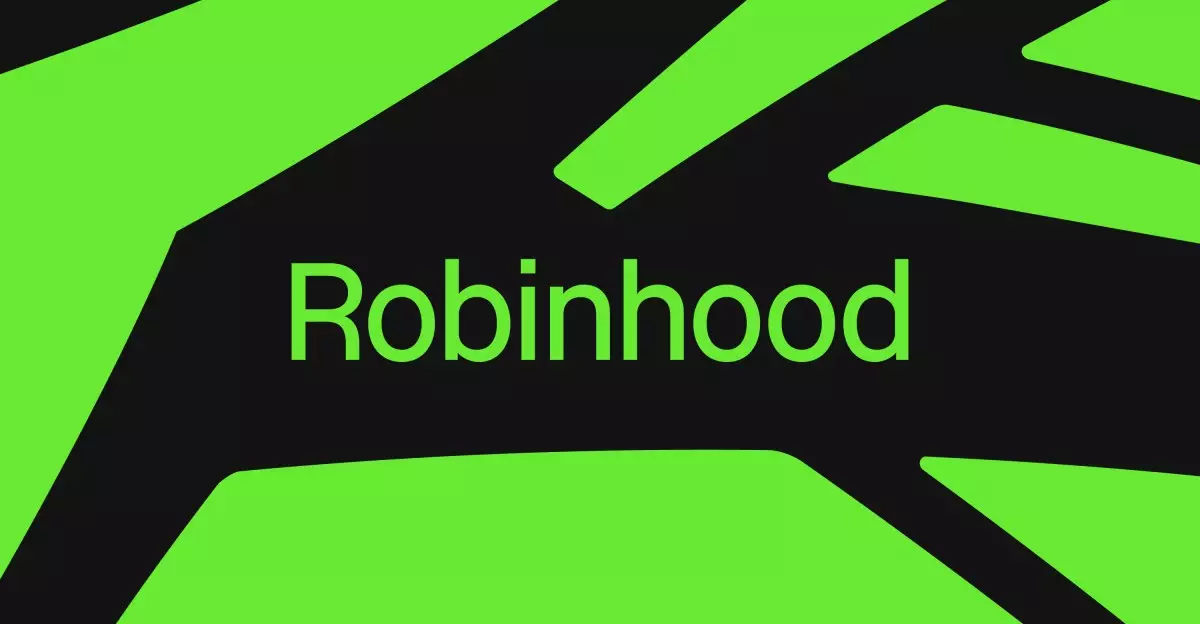In a rapidly changing financial landscape, Robinhood is set to take a monumental step forward by offering checking and savings accounts, a move that could disrupt traditional banking norms. The onus of this transformation lies heavily on the platform’s ability to cater to a younger demographic that values convenience and digital accessibility over physical locations. As financial institutions continue to grapple with their legacy systems, Robinhood is reinventing the wheel by injecting innovation into personal banking—an industry that has remained largely unchanged for decades. While other fintech firms have floundered, Robinhood’s rise symbolizes a pivotal moment in economic empowerment for millennials and Gen Z users, who demand flexibility and seamless service integration.
The Promise of Robinhood Banking
Scheduled for launch later this fall, the Robinhood Banking platform is touted as a holistic banking solution tailored specifically for Robinhood Gold subscribers. This offering is particularly compelling, providing a staggering 4% annual percentage yield (APY) on deposits—an enticing figure when compared to the dismal returns often offered by brick-and-mortar banks. Furthermore, the platform assures FDIC pass-through insurance via Coastal Community Bank, allowing users to harbor their funds with a reassuring safety net, albeit indirectly.
What’s noteworthy is the integrate-on-the-go concept Robinhood aims to promote. With features like cash delivery to your doorstep and the ability to send and receive money directly through the app, the experience promises to be as frictionless as possible. For many, the prospect of managing their finances from one centralized platform is appealing, offering a direct answer to the cumbersome practices found in conventional banking operations. However, while Robinhood’s ambitions are commendable, there lies the question of whether they can deliver the level of assurance and trust that institutions with a history of stability have built over decades.
Strategies for Wealth Management
In tandem with its banking offerings, Robinhood is also rolling out Robinhood Strategies, a newly minted wealth management service that amalgamates actively managed funds with user-friendly investment approaches. This service, which comes with a modest annual management fee, aims to minimize barriers for entry into the world of investment for novice traders. The unique selling point of this service is its accessibility—both in terms of cost and ease of use—lowering the threshold to engage with stocks and ETFs for even the greenest of investors.
This strategy aligns seamlessly with Robinhood’s long-standing aim: democratizing finance. Yet, it begs a deeper inquiry into what “democratizing finance” really signifies. While Robinhood touts innovations designed to cut out the middleman and provide transparency, newcomers to investing could easily be drawn into complex financial traps without sufficient guidance. The promise of a portfolio managed for you seems alluring, yet it comes with an inherent risk of misjudgment and mismanagement—an aspect Robinhood must not take lightly.
AI and Future Innovations
The impending launch of an AI-driven investment tool called Cortex demonstrates Robinhood’s commitment to pushing their services into uncharted territories. Offering real-time market analyses and insights, this tool has the potential to aid users in making informed decisions, thus offsetting some risks associated with trading. However, as with any technology, the efficacy and accuracy of AI tools are contingent on the quality of the data fed into them.
Furthermore, the looming question remains whether Robinhood will maintain its user-centric ethos as it expands its suite of services. Will the introduction of AI provide actionable insights that truly empower consumers, or will it perpetuate market volatility due to impulsive and emotionally-driven decisions? The stakes are high, and while the potential for innovation is vast, the responsibility accompanying such advancements cannot be overlooked.
Custodians of Change
Ultimately, Robinhood stands on the threshold of becoming more than just an investment app; it aims to be a comprehensive financial ecosystem. In an age characterized by technological disruption, customer trust will be pivotal for Robinhood’s enduring success. The company’s challenge now lies in effectively communicating the value of its innovative offerings and ensuring that these solutions resonate with both affluent users and those just beginning their financial journey.
If Robinhood can sustain the momentum it has built and continue to prioritize the needs of its users, it could catalyze a more inclusive environment in finance—one where anyone, irrespective of their background or financial literacy, can partake in wealth creation. The question that remains, however, is whether this transformation will indeed foster empowerment or merely replicate the disparities found within traditional banking systems.


Leave a Reply